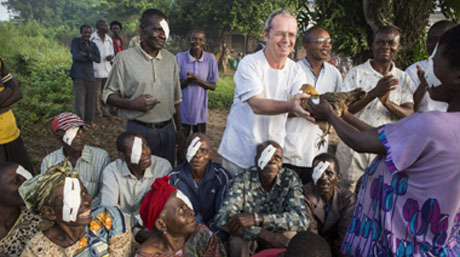After a wonderful and exciting journey we arrived in the village of Pania Mutombo. Actually, Pania Mutombo is the umbrella name of 4-5 villages. We settled down on the parsonage farm built in the eighties. Months before our arrival, several reconnaissance brigades made lists of the local patients. According to the list there were several hundred patients with cataracts. Some of these had been treated by us in November last year.
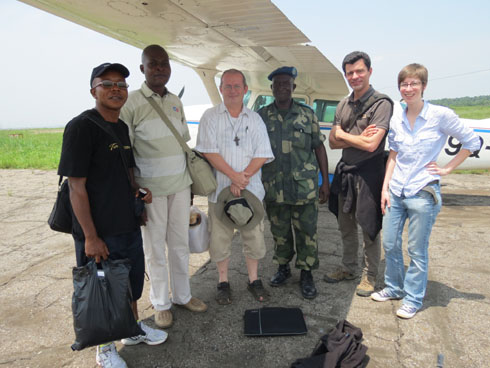
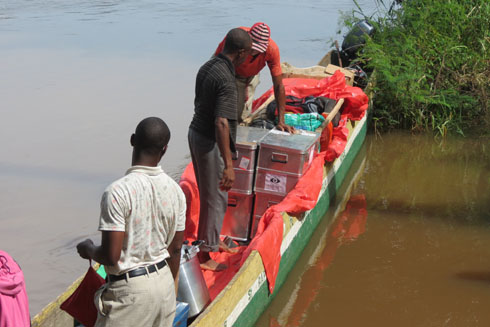
Luckily the pastor was on field-work, so we took possession of the whole presbytery. After everything had arrived (the landing place was three miles away) and we settled in, I immediately started seeing patients.
There will be lots of patients, I thought, because there has never been an eye specialist in this region. The first afternoon I saw about 30 patients. The health of the population proved to be catastrophic. Every second patient was blind, and the cause of the blindness was onchocerciasis. This confirmed what many have told me about the prevalence of river blindness in this region. The population apparently lives with the parasites, virtually becoming accustomed to the often aggressive and stinging flies (Simulium Damnosum). The inhabitants are frequently being offered antiparasitic medication, but unfortunately many of them refuse to take it for fear of side effects. In addition, as there are lots of flies that transmit the parasites, the locals are constantly re-infected. We saw young patients between the ages 30-40 almost blind due these circumstances. In the advanced stage of the disease even an expert cannot do very much.
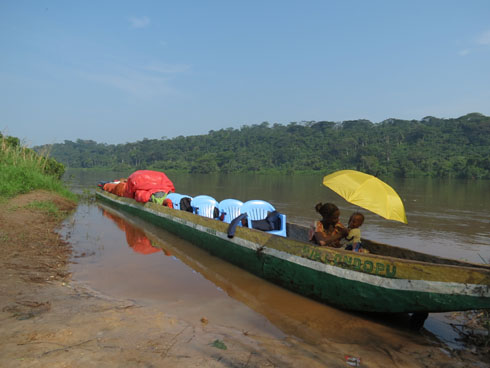
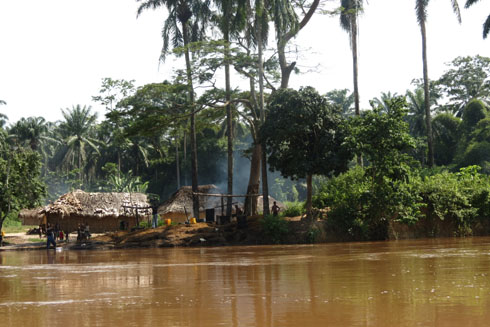
Within two days, we managed to form an operating program consisting of some 200 patients. As the population is exremely poor, we could hardly ask for any contributions to the cost of their surgeries. Some people offered a little bit of money, others a chicken. One sick old lady proposed the following:
"I’ll pawn my skirt! But first I’d have to wash it ... "
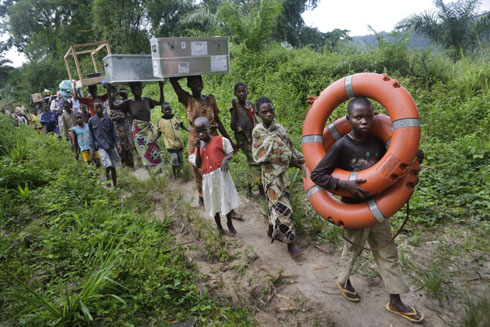
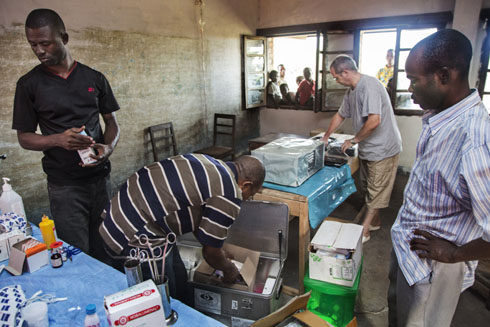
We were very pleased to meet up again with patients whom we had operated on earlier in Lusambo. (See the village witch story.) It is always thrilling to see patients again five-six months after surgery and to measure them up. In general I am very pleased because we rarely encounter problematic cases. On these occasions the pre-used glasses come in very handy because we can use them on the spot. We made very good use of the glasses that had arrived from home and which I had calibrated before our trip.
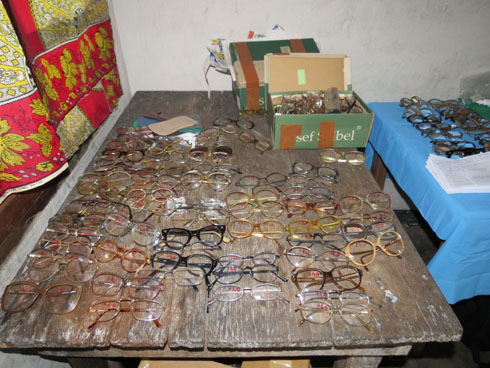
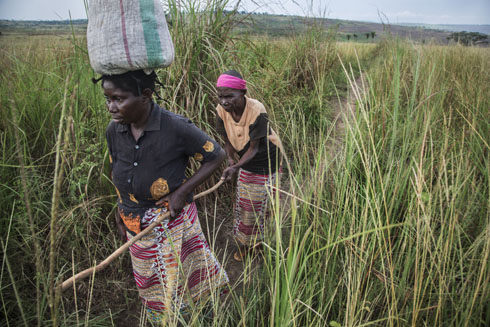
Our operating days lasted from early morning until sundown. It was pretty hot, we sweated profusely, and we all lost several kilos, but our time-proven team stood its ground well.
We observed a strange phenomenon: Some people in the area had been spreading the rumour that we were charging a lot for our services, and it has been confirmed that there were would-be patients who actually turned back midway.
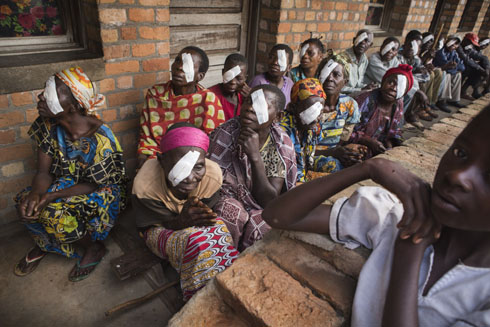
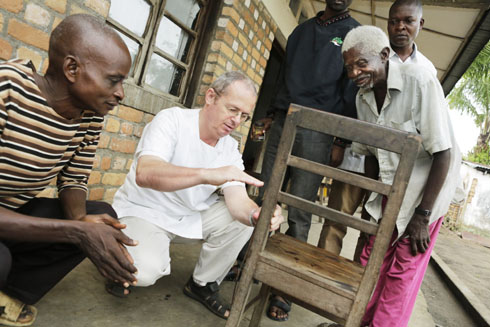
Then I realized that there were people who were bothered by our presence. (Charlatans were regularly roaming the interior, making their living by bogus treatments and even performing operations!) I have seen a cataract patient who was supposed to have undergone such an operation, but there was (luckily) no sign of it in his eye.
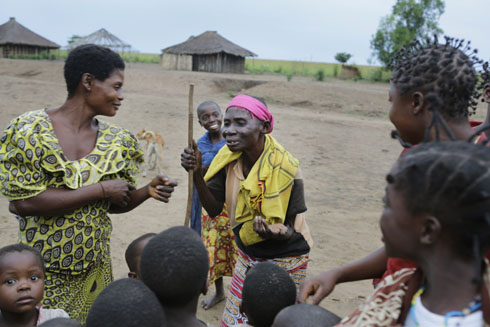
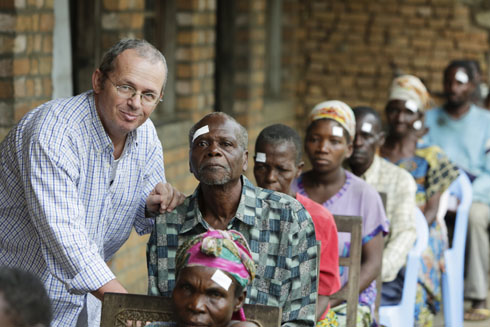
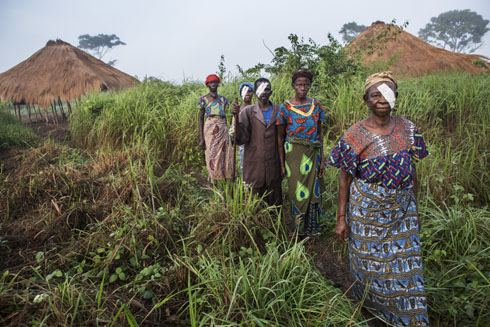
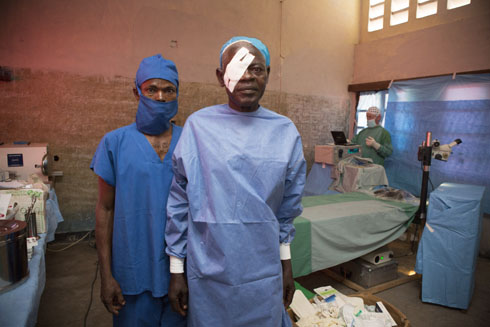
These chartlatans frequently combine their actions with religious practices and superstitious beliefs. The patient will put up with it all and wait for a cure, and if it does not eventuate is wont to look for a scapegoat, usually within the family. That is how family squabbles develop.
As there were not really many patients we went back after a week’s work to Lusambo to look after our patients there. Altogether we examined 550 patients on the two locations and performed 106 operations (within 14 days!). Most of them were for cataract removals.
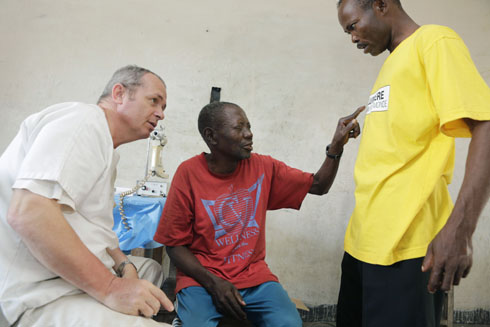
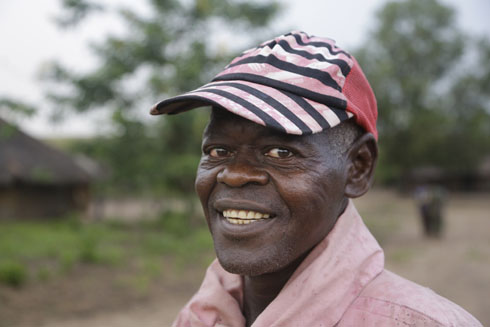
There was quite a bit of trouble on our way back. Knowing that the road was very bad, we wanted to cross the river Sankuru early in the morning. We asked for the ferry to be ready by 6am. We managed to board by 7, the car jam-packed; the ferry sets off, leaves the shore and about 30 seconds later where the current is the strongest, the the engine just shuts down. „The filter is clogged”, they said… Meanwhile the current got us, and it crossed my mind: Will we drift down all the way to Kinshasa? Luckily there was a very strong anchor with a good iron chain, which was quickly lowered. They began to clean the filter (in Africa, the diesel fuel filters clog up constantly because of the poor quality and badly stored and treated diesel fuel).
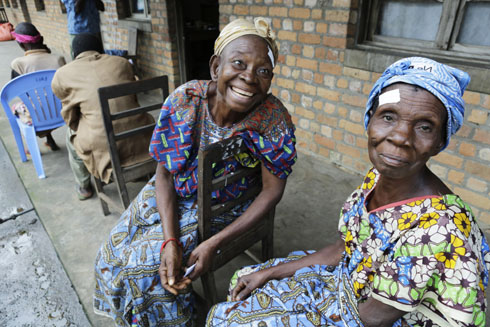
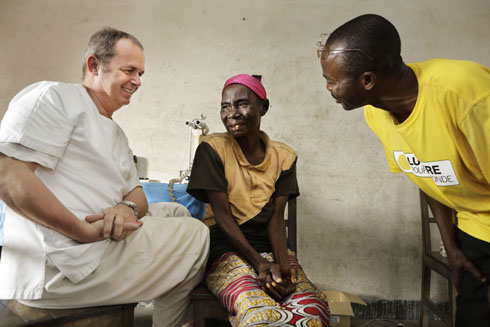
After several unsuccessful attempts to restart the engine the captain pronounced, "We have run out of gas!"
I thought I was going to explode on the spot, as only the previous day they had received the price of 20 litres of fuel from me. They signalled to a pirogue to go and fetch fuel. Meanwhile we could watch the glorious sunrise; the colours were beautiful with a lot of photo opportunities, which cooled my temper. We saw how a pirogue was taking children to school from the left bank. Well, I wasn’t that lucky in my childhood to be taken to school in a canoe! It took two hours for the engine finally to start up and we could cross the river.
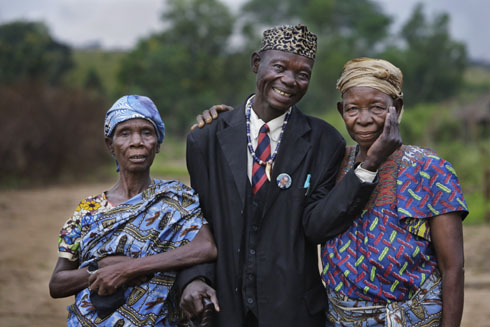
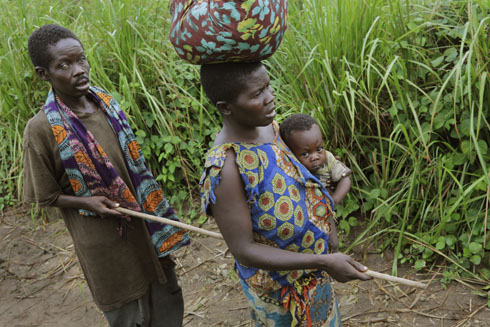
The going was tough and we got back to Mbuji Mayi only after two days; we stopped off in a lovely little village for the night.
The Pania Mutombo mission was difficult, but very effective; after all, our constant goal is to cure the poorest with the best techniques! And we actually accomplished that!
Article Lumiére Poure le Monde



